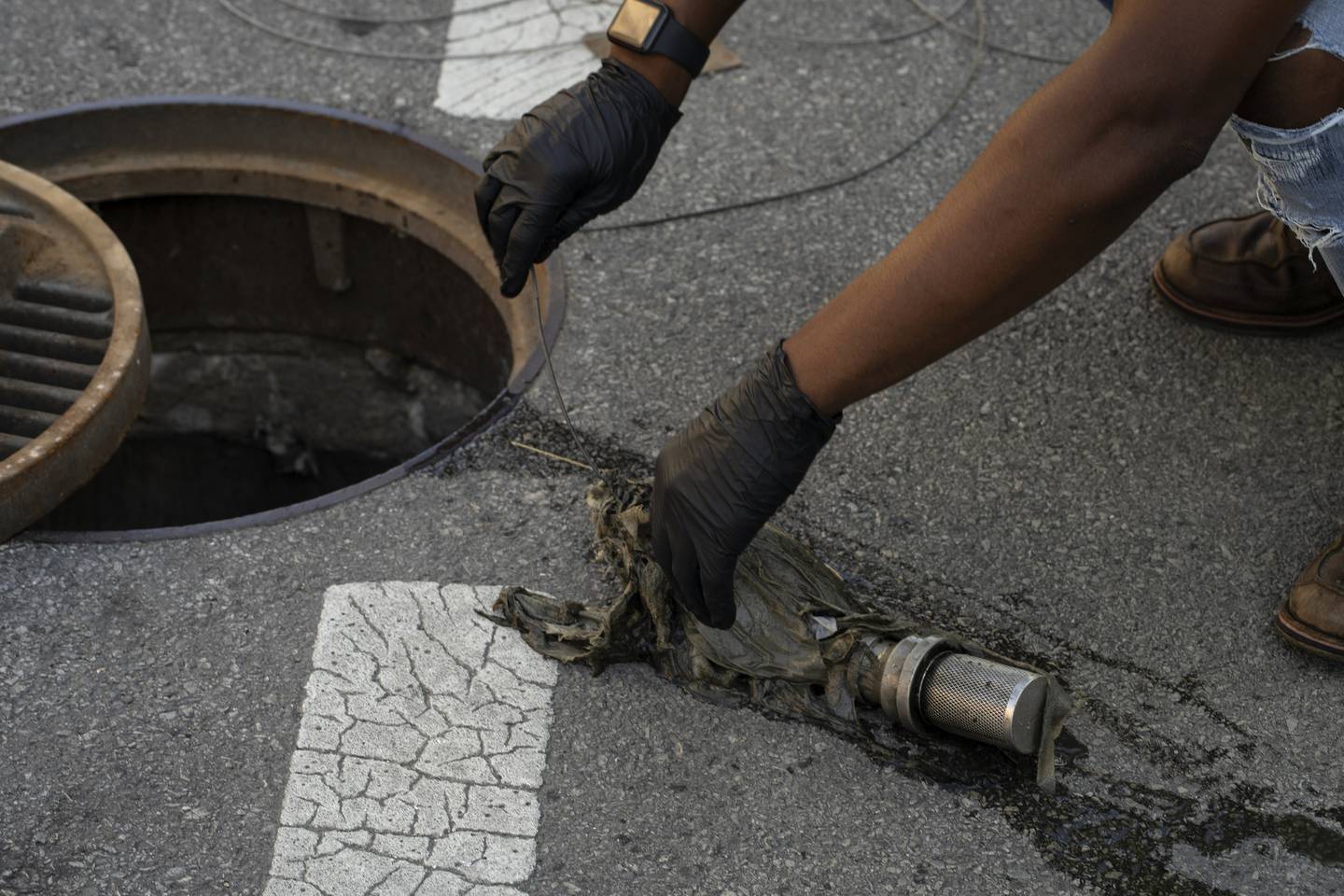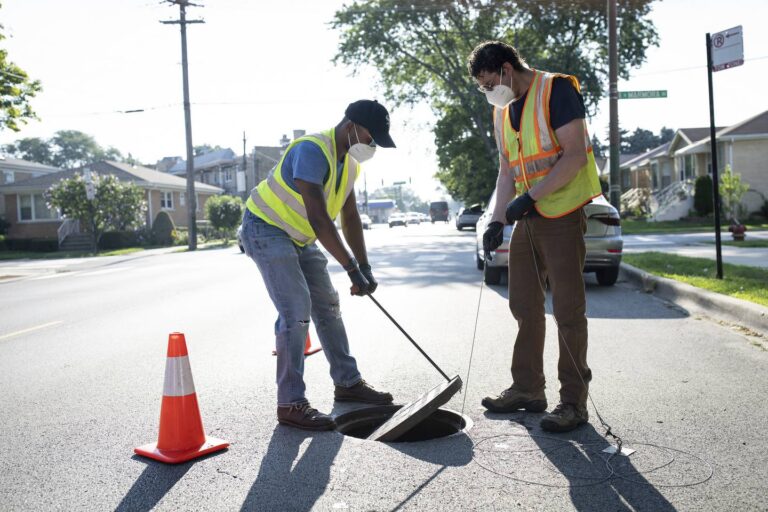On a sunny Thursday morning, at the mostly quiet intersection of Clifton Avenue and Broadway, Evan Berkowitz and John Leavell pulled a small steel cage the size of a coffee cup from a sewer with the mastery of someone who has done this a thousand times.
Inside the cage: a tampon, bloated and sodden with wastewater.
Advertisement
Beyond covering menstrual needs, tampons have been famously used to stop nosebleeds and dress emergency wounds. Now, they are being used to test sewage for COVID-19.
“I was just like, ‘You really use tampons?’” said Laura Clements, senior project manager at the University of Illinois Discovery Partners Institute. “It’s just crazy to me, but it’s true.”
Advertisement
And the results are reliable: As new coronavirus variants dominate COVID-19 cases in Chicago, researchers said they were able to detect the presence of the omicron BA.2 subvariant two weeks before it showed up in an individual clinical COVID-19 test.
Clements is part of a DPI team working with the Illinois Department of Public Health to test wastewater in order to monitor COVID-19 cases in the state. Though this type of community testing has been used across the country to detect COVID-19 since late 2020, scientists have only recently turned to using tampons as Moore swabs.

Leavell and Berkowitz, contractors from Current Water and Infrastructure Engineering Inc., have been picking up the samples on the North and South Sides of the city four days a week every week since December. Researchers select locations to test based on COVID-19 vulnerability as well as on a lack of clinical testing availability, and “to have good, citywide representation,” said Rachel Poretsky, an associate professor of biological sciences at the University of Illinois at Chicago.
With the help of three traffic cones and bright yellow vests, the men brave the passing cars to lower a tampon 20 feet down into a sewer through a maintenance hole. They leave it there for two to five days, researchers explained, in the “murk and yuck,” where the tampon literally absorbs days’ worth of data.
When they return, they replace the sample with a fresh tampon and take it to a UIC microbiology lab — where the sample is tested for the coronavirus — and to Argonne National Laboratory for genetic sequencing to figure out what variants of the virus are present. Samples are collected twice weekly.
Tampons are not only an accessible and cheap alternative, but they are also easier to use than an auto-sampler, the equipment normally used in wastewater treatment plants, Clements said. An auto-sampler takes small, periodic samples for analysis.
Leavell and Berkowitz said it’s “much easier” to sample the wastewater with tampons.
“It’s more straightforward,” Leavell added.
Advertisement

Afternoon Briefing
Daily
Chicago Tribune editors’ top story picks, delivered to your inbox each afternoon.
“I’ve heard from people who use auto-samplers in the field, you pretty much have to be like a powerlifter to even pull it out of the sewer to get the sample while you’re sitting in the middle of traffic,” Clements said.
And that’s assuming the auto-sampler’s battery didn’t die and the wastewater didn’t freeze as it was being pumped out during the cold Chicago winters.
But the tampons initially presented a challenge. They could be easily flushed away by waste in the sewer pipes if they had nothing to safeguard them. So Charlie Catlett, a recently retired research scientist at DPI, came up with a solution.
“Charlie, basically, is the kind of person who just makes stuff just for fun, and not even for fun — out of necessity — but he just went into his garage and started tinkering,” Clements said.
The result: the small, coffee cup-sized steel cage that can be lowered down the maintenance holes and that protects the tampons from floating away. “Because you can’t just dangle a tampon in the sewer,” Poretsky said. The baskets, she added, are “kind of unique.”
“We really switched to full-time employing (the tampons) in the city sewers this winter,” Poretsky said. “And that was because we had to design the cages and design the system, but it turned out to be a sort of godsend to the contractors that we use to sample.” The tampon-in-a-basket system is that much faster too.
Advertisement
Clements said scientists have used tampons in the past to detect the presence of other diseases such as cholera. They might even be used to collect wastewater samples to be tested for monkeypox, a new virus spreading across the United States and in Chicago.






